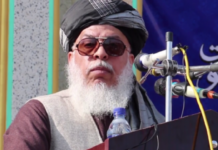Iran and Saudi Arabia carried out the most executions among Muslim countries in 2019, according to figures released by human rights group Amnesty International.
Amnesty says most executions took place in China, but Iran, Saudi Arabia, Iraq and Egypt came next.
Iran executed 251 people in 2019; Saudi Arabia executed 184 people; Iraq executed 100 people; and Egypt executed 32 people.
The death penalty is widely accepted in the Muslim world as a deterrent against the worst crimes, but western human rights bodies such as Amnesty regularly campaign for its abolition.
Iran insists that most of the people it executes are drug traffickers and the West should thank it for its role in the war on drugs.
And Saudi Arabia says its executions are in line with the country’s own laws, although many accuse Riyadh of only applying them against the poor and not the rich and well-connected.
The Middle East and North Africa region reported a 16% increase in the number of executions (from 501 in 2018 to 579 in 2019) bucking the trend that has seen a decline in the region’s recorded use of the death penalty since 2015.
Subscribe to our newsletter and stay updated on the latest news and updates from around the Muslim world!
Bahrain, Egypt, Iran, Iraq, Saudi Arabia, Syria and Yemen were known to have carried out executions last year.
Egypt again imposed the most confirmed death sentences in the region, but the 2019 number (at least 435) was dramatically lower from at least 717 people sentenced to death in 2018.
For the first time in almost a decade, the Asia-Pacific region saw a decrease in the number of executing countries, with seven countries carrying out executions during the year.
Although Bangladesh resumed executions (two), none were reported in Afghanistan while Malaysia continued to observe its official moratorium on executions established in July 2018.
Recorded executions in Pakistan in 2019 represented the same total as in the previous year with at least 14 men hanged in the country. Death sentences in the country increased significantly to at least 632, after additional courts became operational to deal with a backlog of cases.
Kazakhstan and Tajikistan continued to observe official moratoriums on executions. And Kazakhstan also announced measures to start the process of joining the Second Optional Protocol to the International Covenant on Civil and Political Rights, which commits states to abolishing the death penalty.
Amnesty says death sentences were known to have been imposed after proceedings that did not meet international fair trial standards in countries including Bahrain, Bangladesh, Egypt, Iran, Iraq, Malaysia, Pakistan, Saudi Arabia and Yemen.





















